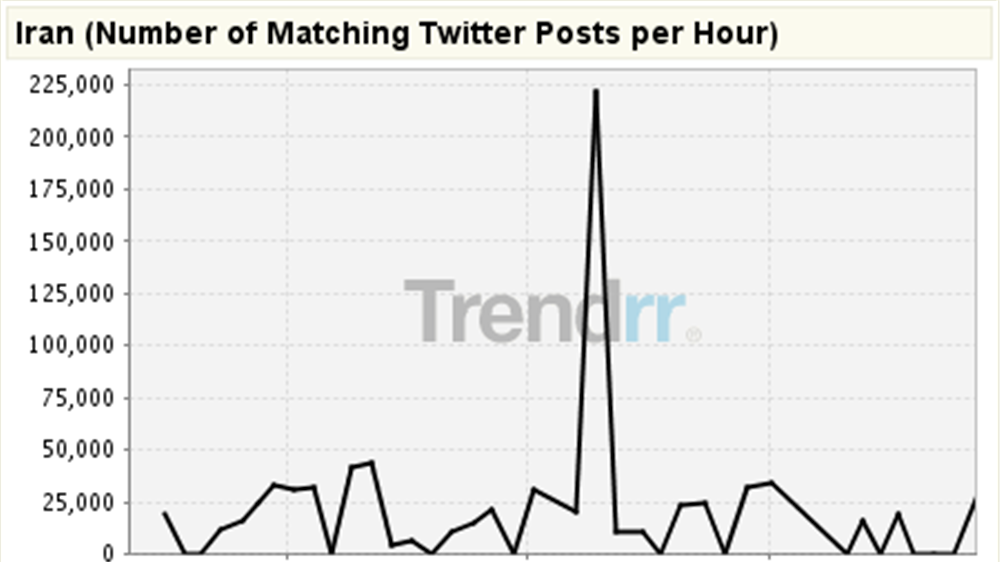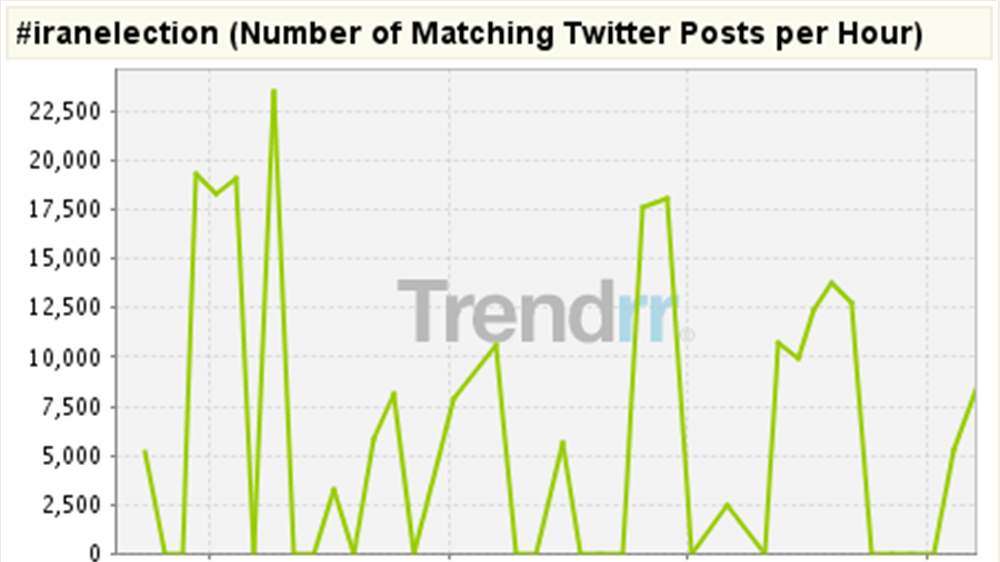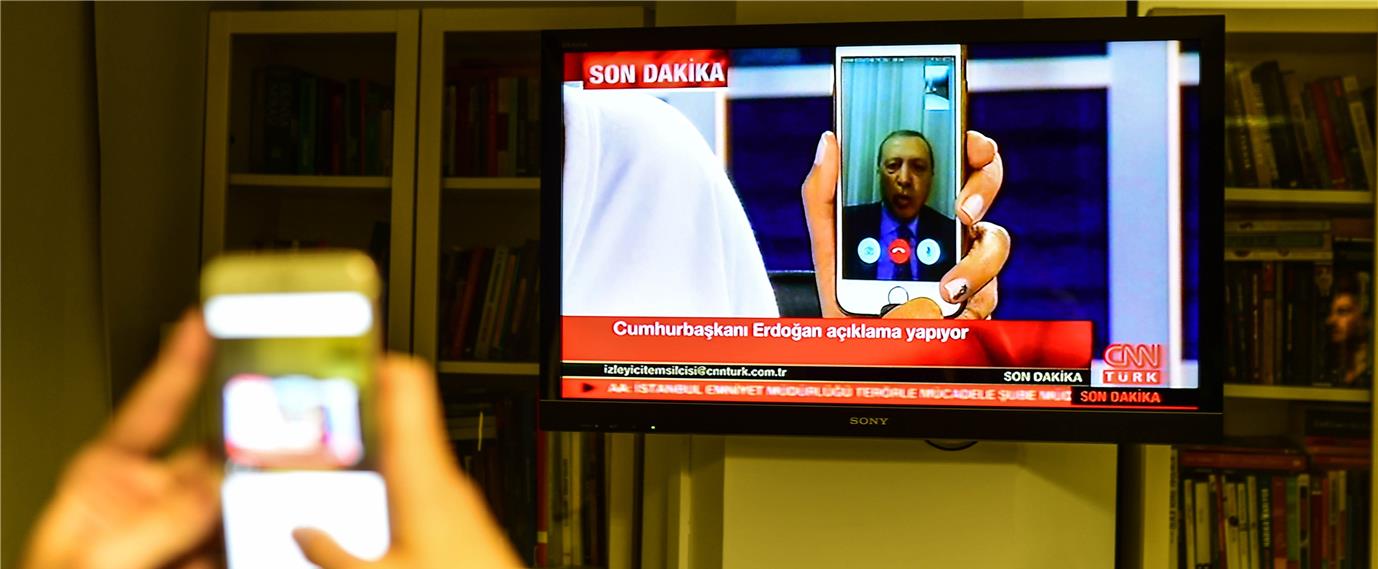تغير التكنولوجيا كل شيء، ففي الوقت الحاضر يمكن الجمع بين كل من الصور ومقاطع الفيديو والخرائط لتحويل جزء من النص إلى مشروع ضخم على شبكة الإنترنت، قد يحدث ثورة أو يطلق احتجاجات أو يفشل انقلابا.
ومع أهمية وسائل التواصل الاجتماعي بالنسبة لكل فرد أو ناشط أو إعلامي، إلا أنها تجاوزته أيضاً ووصلت إلى أيدي السياسيين والرؤساء، واتسعت أكثر لاحقاً لتغير ظروف البلاد ومستقبلها الاجتماعي والسياسي والاقتصادي، فعدا عن كونها مساحة خاصة للرأي والتعبير، فقد باتت تشمل دعوات للتغيير في المجتمعات، حتى قلصت الحدود الفاصلة بين الرئيس والمرؤوس، والمواطن والمسؤول.
يتناول هذا التقرير ثلاثة مواقع وتقنيات غيرت الخريطة السياسة وأحدثت تفاعلات مجتمعية وأوصلت الصوت المطموس رغم محاولات الحجب والتشويش.
1- فيس تايم:
محاولة الانقلاب الفاشلة في تركيا، والتي بدأت مساء يوم 15 يوليو/تموز، جرى تنسيقها باستخدام خدمة التراسل عبر الهاتف "واتس أب" كما كشفت مراسلات بين "الانقلابيين" نشرت تفاصيلها قناة الجزيرة في 17 يوليو/تموز، ووفقا لتقارير من وسائل الإعلام التركية، كان من بين المتآمرين عقيد في الجيش التركي يعتبر خبيرا في مجال عمليات السايبر (الهجمات الإلكترونية) ويدعى أحمد زكي غيرهان، وهو رئيس قسم العمليات والاستخبارات في الكلية الحربية التركية وشارك في تأليف عدد من المقالات حول الحرب الإلكترونية.
(فيديو قصير من المراسلات، ويظهر فيه اسم أحمد زكي غيرهان، خبير التكنولوجيا)
وخلال ساعات لم يعرف فيها مصير تركيا ومستقبلها، ظهر الرئيس التركي رجب طيب أردوغان من مكان مجهول في مكالمة مع قناة "سي أن أن" النسخة التركية، ووجه رسالة عبر "فيس تايم" قائلاً "سنتغلب على هذا الوضع"، داعيا الناس إلى الخروج للميادين، حتى تمكنت السلطات من إفشال الأنقلاب.
ورغم انتقاد أردوغان المتكرر للتكنولوجيا ودعوة الأتراك إلى عدم التعلق بالإنترنت، إلا أنه واصل استخدام ثورة التقنيات خلال تلك المرحلة العصيبة، فلم يكتف بفيس تايم، بل دعا 8 مليون من متابعيه على تويتر للتوجه إلى الميادين والمطارات لحماية الديمقراطية قائلا: "أنا سأكون هناك بينكم".
Milletimizi demokrasimize ve milli iradeye sahip çıkmak üzere meydanlara, havalimanlarına davet ediyorum.
— Recep Tayyip Erdoğan (@RT_Erdogan) July 15, 2016
Cumhurbaşkanı Erdoğan: "Herkesi şehirlerin meydanlarına, havalimanlarına davet ediyorum. Ben de aynı şekilde onların arasında olacağım."
— T.C. Cumhurbaşkanlığı (@tcbestepe) July 15, 2016
تغريدات الرئيس أردوغان على تويتر
2- ثورة تويتر
في عام 2009، احتج الشارع الإيراني ضد ما أسماه تزوير نتائج الانتخابات لصالح الرئيس محمود أحمدي نجاد، واستمرار تحكم السلطات في وسائل الإعلام المحلية، وحجبها المواقع الإلكترونية المؤيدة للمرشح الإصلاحي آنذاك مير حسين موسوي، ومنعها الصحفيين الأجانب من تغطية الانتخابات والأحداث الدامية التي تلتها؛ فلجأ الشباب الإيراني إلى موقع التغريدات القصيرة "تويتر" في محاولة لإيصال أخبارهم إلى العالم الخارجي والتعبيرعن احتجاجهم والمطالبة بإعادة الانتخابات ووقف الحملات الأمنية ضد المتظاهرين. وبذلك أصبح "تويتر" هو المصدر الرئيسي للأخبار والتطورات القادمة من إيران.
أخرت شركة تويتر عملية ترقية الشبكة التي كانت مقررة آنذاك، والتي ستصبح الخدمة على إثرها غير متصلة لفترة وجيزة، وجاء ذلك بناء على توصية من وزارة الخارجية الأميركية للشركة، ووقتها حصلت وكالات الأنباء الكبرى، مثل "سي أن أن" و"بي بي سي" على الكثير من معلوماتها من خلال استخدام التغريدات التي ينشرها مستخدمو تويتر إلى جانب مقاطع الفيديو المحملة على موقع يوتيوب.
وبالرغم من تمكن السلطات من حجب المدونات ومواقع اجتماعية أخرى مثل "فيسبوك"، لم تستطع منع الناشطين من استخدام تويتر عبر الهواتف النقالة، فاستعصى "تويتر" على الرقابة الحكومية بإيران، إلى أن أعلنت السلطات الإيرانية أنها ستحاكم أي شخص يستخدمه للأغراض السياسية الخاصة بنتائج الانتخابات.
ويمكن من خلال هاتين الصورتين ملاحظة الفارق الرهيب في الثورة التي حدثت على تويتر خلال تلك الاحتجاجات.


3- فيسبوك
لقد كان وقت الاحتفال بالكريسماس، حين لاحظ المدير التنفيذي لشركة فيسبوك جو سوليفان شيئا غريبا يجري في تونس، التقارير بدأت تظهر من خلال صفحة للاحتجاجات تم اختراقها، "الأمر بدا وكأن أحدهم دخل من حسابي وحذف تلك الصفحة"، كما يقول سوليفان.

بدأت القصة بداية الثورة التونسية، عندما ابتدع مدونون في تونس طريقة جديدة للاحتجاج على حجب عدد من المدونات والمواقع الإلكترونية عبر تنظيمهم لـ"مظاهرة إلكترونية" شارك فيها الآلاف، حيث أسّس المتظاهرون موقعا إلكترونيا خاصا أطلقوا عليه اسم "عمار 404" ليكون فضاءً للتظاهر، كما اختاروا عبارة "سيّب صالح" التي تعني في اللهجة العاميّة التونسية "كفاية.. اتركني وشأني" كشعار لحملتهم. لكن الموقع حُجب بعد ساعات من إطلاقه، ما حدا بالمحتجين إلى نقل التظاهر إلى المدونات الشخصية وشبكات التواصل الاجتماعي ومن أشهرها فيسبوك.
والمثير أن "عمّار" اسم محدود التداول في تونس، غير أن بطلي اثنتين من أشهر المسرحيات الكوميدية التي استقرت في الذاكرة الجماعية للتونسيين منذ السبعينات "الماريشال عمّار" و"عمّار بو الزوّر" يحملان هذا الاسم. أما الرقم "404" فهو الرقم الذي يظهر على شاشة الحاسوب كلما تعذّر النفاذ إلى المواقع الإلكترونية المحجوبة.
وفي هذا السياق اتهم مشاركون في حملة الاحتجاج الإلكترونية الوكالة التونسية للإنترنت (وهي هيئة حكومية خاضعة لإشراف وزارة تكنولوجيات الاتصال) بحجب المدونات والمواقع الإلكترونية دون مبرر قانوني، وأعطوا اسم "عمار" الوهمي للرجل الحكومي الذي يتسبب بالحجب.
وبعكس التوقعات، فإن حجب المواقع والمدونات ساهم في تزايد الإقبال عليها في تونس، نظرا للحاجة إلى توسيع هامش الحرية، كما تقول الناشطة التونسية أماني الشابي.
وتضيف الشابي أن موقع فيسبوك أجج الثورة التونسية في ديسمبر/كانون أول 2010، بل شكل دافعا قويا لانطلاقها، فكان المنصة الأولى التي حققت نتائج مجدية حينما دعا الناشطون -من خلالها- الشبان إلى التظاهر، فخرج آلاف التونسيين لرفض البطالة والفساد عقب حادثة إحراق الشاب محمد البوعزيزي نفسه تعبيرا عن غضبه على بطالته ومصادرة العربة التي يستخدمها في عمله.
وتتابع الناشطة التونسية في حديث لمجلة الصحافة "كانت وسائل الإعلام آنذاك رسمية، أو خاصة لا تحيد عن الموقف الرسمي، وكان موقع اليوتيوب مغلقا قبل الثورة، لم يكن بالإمكان أن نعبر عن رأينا، حتى بدأنا باستخدام الفيسبوك من أجل الحشد، وكنا نوجه الدعوات بالفرنسية والعربية والإنجليزية".
وفي وقت الثورة، برز المواطن الصحفي، فأصبح الكل ناشطا ناقلا للأحداث عبر فيسبوك، آخذين على عاتقهم دورا هاماً لتوعية الناس، مما أدى إلى تحرك فعلي كبير من الأغلبية الصامتة، والمناطق المهمشة مثل سيدي بوزيد.
وعندما شعر التونسيون أن فيسبوك هو محرك هذه الثورة، صمم أحدهم صورة الرئيس التنفيذي لشركة فيسبوك مارك زوكربيرغ وهو يحمل لافتة مكتوب عليها "سيب صالح يا عمار"، دعماً لشعار الحرية والثورة (2).
هوامش
(1) http://mashable.com/2009/06/17/iranelection-crisis-numbers/#_ikZHwmMQiqP
(2) http://www.theatlantic.com/technology/archive/2011/01/the-inside-story-of-how-facebook-responded-to-tunisian-hacks/70044/








































